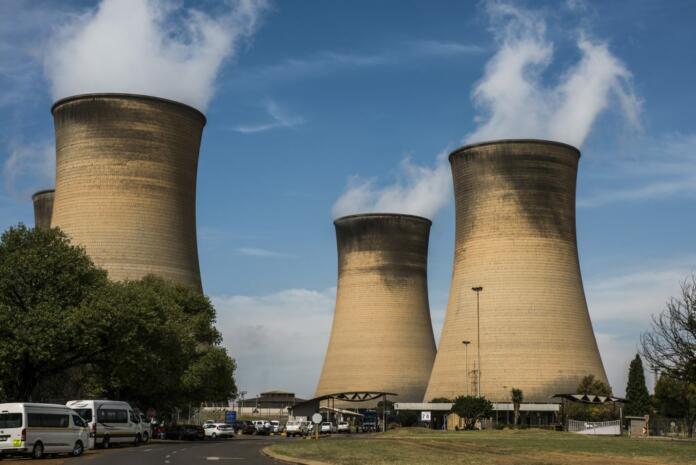Those units in Eskom’s coal fleet that do work are being utilised at a rate of more than 90% versus an international benchmark of 70% – and that concerns lenders, says Lungile Mashele, energy expert at the Development Bank of Southern Africa (DBSA).
“We are currently running our coal fleet to the ground,” she said at a webinar hosted by EE Business Intelligence on Tuesday (December 7). This was the first in a series of webinars about Eskom’s reliability maintenance and dealt with reliability maintenance for boilers and associated power generation plant.
Mashele warned that lenders have their own technical experts like herself, who analyse the technical performance of utilities and look at indicators such as the amounts spent on maintenance and the utilisation factors of plant down to power station level.
She said Eskom has for some time not met the technical criteria to justify any additional funding.
Her remarks come as Eskom is dependent on loans to meet its operational requirements although it already has a debt burden of around R400 billion.
Maintenance spending
Mashele said Eskom’s expenditure on maintenance was very low in 2020 and this concerns lenders.
It might be the reason for the current high level of unplanned outages and unprecedented amount of load shedding this year, she added.
She said the utility currently averages 2.3 boiler tube failures per unit per year as opposed to the target of one and there is no guarantee that this won’t increase.
The maintenance Eskom did manage to do was mainly within the generation business, while little was done in transmission and distribution.
That, Mashele said, is why the trips after load shedding are increasing, as are transformer blowouts and fires.
Eskom chief operating officer Jan Oberholzer said at the same event that the utility has only completed 18 out of 84 outages for reliability maintenance it had planned.
According to Mashele it could take “the best part of the next decade” to complete all of these maintenance outages.
Maintenance outages
According to Oberholzer it takes 18-24 months to properly prepare for outages and requires the money to be made available and released – as well as a commitment to go ahead with the outage, come what may.
Mashele said the conversation about this should have been had two years ago to get the buy-in of National Treasury, the Department of Mineral Resources and Energy (DMRE), lenders and other stakeholders.
She said Eskom’s maintenance cost has spiralled in some cases due to a lack of adequate preparation before outages and also due to fraud and corruption. When emergencies occurred, funds earmarked for reliability maintenance had to be redirected.
It leads to a loss of confidence when lenders see the utility promising to do one thing then ends up doing something else.
She said Eskom cannot wait 70-90 days for approval from National Treasury for procurement decisions, as Oberholzer said is the case.
Mashele further pointed out that Eskom’s coal-fired fleet is not designed for ‘load following’, which means ramping up and down as demand fluctuates over a period of 24 hours.
This is however increasingly the case as the portion of intermittent renewable generation increases.
State of concern
She said it is problematic that the procurement of new generation capacity is not in the hands of Eskom.
It is being done by the DMRE, which takes the procurement decisions with Eskom as off-taker of the energy.
She said government structures tend to take decisions for political expediency, rather than focusing on what the grid needs.
Mashele said the addition of flexible gas generation as envisaged in the Integrated Resource Plan (IRP) is necessary to supplement the intermittent renewable generation.
She warned that Eskom’s technical performance is deteriorating and said it will impact its lending capacity in future.
“The failure of Eskom will lead to South Africa failing,” she said.
Oberholzer said the team at Eskom is trying its best to recover the operations, but under extremely difficult conditions.
There are many committed staff members who do not deserve the abuse they get, he said.
“All me and my colleagues get is insults and criticism.”
It would have been great to rather get support, he said.
Oberholzer emphasised that the country needs 4 000 – 6 000 megawatts (MW) of additional generation capacity to be able to do the necessary reliability maintenance.
Capacity in perspective
Engineering management consultant Mike Rossouw sees things differently: he said Eskom has enough capacity, what it needs is to make that capacity available.
He said Eskom must close down its oldest and worst performing power stations, namely Arnot, Camden, Grootvlei, Hendrina and Komati and redirect those resources.
“Unless we shut them down, I’m telling you, South Africa is going to shut down,” he said.
Facilitator Chris Yelland, MD of EE Business Intelligence agreed – provided that a massive new build programme occurs at the same time.
“Many projects done by many companies, not Eskom,” said Yelland.















